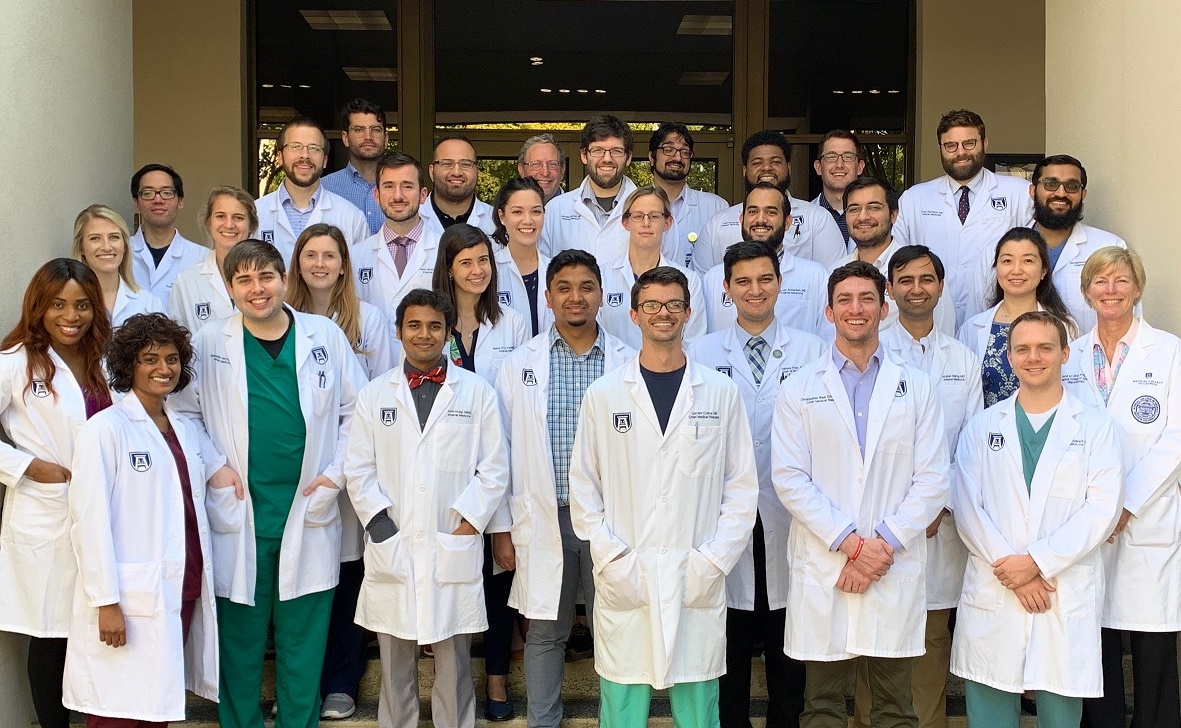Although you’ve likely heard (perhaps over and over) that medical school admission reviews are done through a holistic process, you know that your MCAT and GPA scores are still crucial factors in determining if you get into medical school. Excellent scores can set you up to be accepted by top med schools across the country, but less-than-ideal scores can comprise your entire admissions process, no matter how great the rest of your application is.
It can be upsetting to receive your MCAT score and see that you’ve performed worse than you had hoped. After all, like most med school applicants, you spend months studying only to be crushed when your MCAT score isn’t competitive, or your section scores are all over the place.
By this point, you may be asking yourself, “how many times can I take the MCAT?” or “Should I retake the MCAT?” In this article, all your MCAT questions will be answered, and we will help to guide you in making the best decision for you and your application process.
What Do You Need to Know About Taking the MCAT?
How Many Times Can You Retake the MCAT?
Before deciding whether you should retake the MCAT, it is important to know that the AAMC limits how many times you can take the MCAT.
- Students can take the MCAT up to 3 times per year
- Students can take the MCAT 4 times in a 2-year period
- Students can take the MCAT 7 times in their lifetime
It is worth noting that both voided scores and no-shows count towards your testing limits.
How are Multiple MCAT Scores Evaluated by a Committee?
While the medical school you are applying to will see all of your MCAT scores, the admissions committee will use these multiple scores in different ways, including:
- Considering only your highest score
- Considering the average of all scores
- Considering all scores, but weighing the most recent scoring heavily
- Considering your highest section scores across tests (super score)
Most medical schools do not list how they evaluate these scores on their websites, but you can reach out to the school’s admissions committee for further details.
Generally speaking, it is best to assume that your overall score will be weighed more heavily than your section scores. With this being said, some colleges do have overall and section score cutoffs, meaning they will only evaluate candidates whose scores are at or above the cutoff. These cutoff scores are not often listed by the school, but higher-ranked colleges tend to have higher cutoff scores.
Does Retaking the MCAT Look Bad?
Similar to reapplying to medical school, retaking the MCAT does not inherently look bad. However, you should aim to take the MCAT as few times as possible. For this reason, you should study each time diligently before taking or retaking the test. If you are able to achieve a reasonable score jump from one test to the next, this will show medical schools that you are committed to your education and career path. Oftentimes, in the case of a considerable score jump, colleges will not deem you taking the MCAT multiple times as “looking bad.”
What are the Odds of Getting a Better Score?
Recent data from the AAMC shows that of everyone who took the MCAT between 2018 and 2020, 38% were retesters. Overall, retaking the MCAT tended to yield better scores for this group than their initial scores.
Students whose initial score was below or at 517 saw a median score gain of 3 to 4 points, while those with an initial score of 518 or higher saw a median score gain of 0 points. From a statistics standpoint, if you are already in the top tier of test takers, retaking the test will only better your score slightly. Regardless of this fact, if you intend to retake the MCAT, you should commit to studying so that you can achieve a higher score gain than the median listed in this data. It is important to keep in mind these are just median score changes, and some retesters saw more or less improvement than the median.
Risks of Retaking the MCAT
Most applicants assume they will achieve a higher score each time they take the MCAT. When deciding if retaking the MCAT is right for you, keep in mind that the MCAT is designed to be reliable, and scores from retaking the MCAT can be higher or lower than your initial score.
Medical schools will receive and view all of your MCAT scores, and in the case of your retake scores being lower than your initial scores, the admissions committee may view this as a negative factor—raising questions about your preparedness for med school.
It is quite common to retake the MCAT and receive the same score or a score that is only 1 or 2 points higher. This won’t come across negatively to an admissions committee, but it is worth considering if a second attempt is right for you.
In addition to the risk of receiving the same score or a lower score, retaking the MCAT comes with opportunity costs. Studying for the MCAT can take away from coursework, extracurricular activities, or internships like a pre-med shadowing study abroad program. If you plan to retake the exam right before or during the application cycle, the quality of your personal statement or other admissions essays (like secondary essays) may be compromised.
Now, with these concerns in mind, we will discuss the various reasons why you should or shouldn’t retake the MCAT.
Determining if You Should Retake the MCAT
When it comes to determining if you should retake the MCAT, there are some key factors to consider. You should consider retaking the MCAT if:
- Your highest overall score is not competitive for your target schools. As you construct your school list, you should review each college’s average GPA and MCAT score (these can be found on MSAR). If you find that your score is considerably lower than average for the schools you want to attend, you may need to retake the exam.
- Imbalanced section scores. Some medical schools prefer students to achieve minimum section scores. While this information is not always listed on a college’s website, it may be best to retake the MCAT if your section scores are significantly imbalanced.
- You did not prepare well for previous exam attempts. The MCAT is a difficult exam, and students often underestimate the toughness of the exam. If you did not study sufficiently for the exam, you most likely didn’t maximize your scores.
- You had to navigate illness or other personal difficulties around the time of taking the MCAT. Life happens, and unfortunate events arise when we least expect them to. If you were dealing with illness or another personal difficulty during the time of your MCAT, it is likely you did not receive as high marks as you could’ve.
- Your practice scores were higher than your actual test scores. If you were scoring much higher on AAMC practice materials than your official MCAT scores, you could likely achieve a higher score with a retake.
- You know what went wrong previously and how to address it. If you know what caused you to receive low marks during your first exam, such as pacing yourself poorly, and have a plan to address the issue, you will likely benefit from a retake.
On the other end of the spectrum, there are times when you should not consider retaking the MCAT. Here are some reasons why you may want to avoid retaking the exam.
- You scored 518 or higher. Assuming you have a strong GPA and extracurricular profile, an MCAT score of 518 or higher will allow you to be a competitive candidate for the highest-tier of medical schools. A retake is unnecessary as colleges already consider you to be academically elite with this score. As discussed earlier in the article, data shows that most retesters who initially scored 518 or higher saw a median score gain of 0 points. If you fall into this category, retaking the MCAT is not worth the time, effort, and risk.
- Your score is within range for your target schools. When referring to MCAT scores, there is such a thing as good enough. If most of the schools you are applying for have an average MCAT of 511 and you scored a 512, there is no need to retake the exam. The only exception to this is if your GPA is considerably lower than the colleges’ averages.
- You prepared for the exam, and your score is near or above your practice test scores. If you studied diligently for your MCAT and received an exam score that is comparable to your official AAMC practice test scores, you can rest assured knowing you scored at or near your highest. For students in this category, retaking the MCAT often comes with a higher risk than reward, as you may see very little to no score improvement.
- You don’t have a clear plan or time to address the issues from your previous exam. Achieving a high score on the MCAT requires a large time commitment. If you have other obligations such as extracurriculars, work, putting together your application, or personal commitments that will prevent you from adequately preparing for a retake, you will likely score the same or lower. The same goes for those who blindly study for the exam.
Our Final Thoughts
Students who are considering retaking the MCAT should assess the risks and potential rewards of doing so. A retake may not be in your best interest, depending on a variety of circumstances. Your existing score, practice exam scores, MCAT averages of your target schools, and your commitment and ability to put in effort towards studying for the exam are key factors you should consider.
Some students will find that a retest is not necessary, while others may find that they could benefit from taking the MCAT again. If your initial test score isn’t what you had hoped for, you know you can do better, and you have the time to dedicate to studying for the MCAT. Retaking the exam may be well worth it. If you feel you need additional help and guidance regarding the medical school application process, do not hesitate to seek out the assistance of an admissions consultant through IMA’s medical school admissions consulting.






